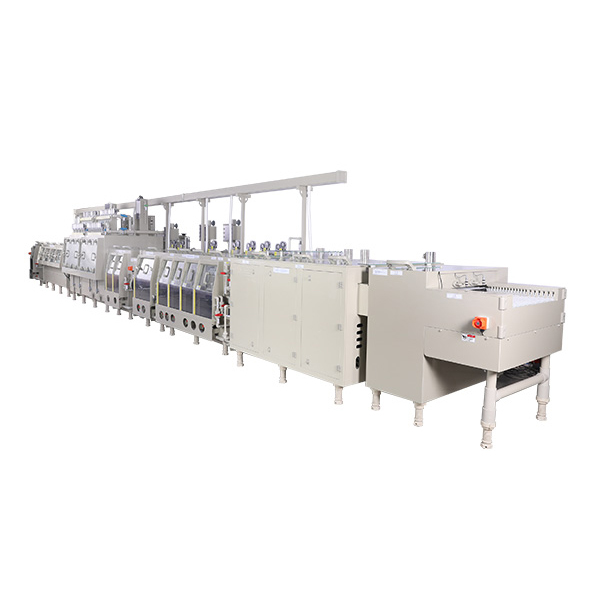High Frequency Quenching Machines: Boosting Efficiency Today!
If you are looking for more details, kindly visit Hitfar.
"What Benefits Do High Frequency Quenching Machines Offer?".
### Article: .
**What Benefits Do High Frequency Quenching Machines Offer?**.
In the manufacturing and metalworking sectors, efficiency is paramount. Businesses are always on the lookout for methods and machinery to improve their processes and outcomes. High frequency quenching machines have emerged as a vital technology, providing multiple benefits that can significantly enhance efficiency in production. .
**Understanding High Frequency Quenching**.
High frequency quenching is a heat treatment process primarily used on metals to increase their hardness and tensile strength. Unlike traditional quenching methods, high frequency techniques use electromagnetic induction to rapidly heat the material's surface before cooling it down instantly. This process results in a harder exterior while maintaining a tough core, ensuring the material's structural integrity.
**Key Benefits of High Frequency Quenching Machines**.
1. **Enhanced Efficiency**: One of the most significant advantages of these machines is their speed. The induction process heats the metal quickly, reducing the time required for treatment. Businesses benefit from shorter production cycles, allowing for greater output without sacrificing quality.
2. **Uniform Hardening**: High frequency quenching machines promote uniform heating across the surface of the metal being treated. This ensures consistent hardness levels throughout the material, reducing the risk of weak points that could lead to failure in applications.
Additional resources:Unlock Efficiency: How High Frequency Quenching Machines Work
Key Considerations When Buying Steel Brewing Equipment
Top 5 Benefits of Using a Package Strapping Machine Today
Key Considerations for Subracks Electronic Packaging Purchases
Induction Forging vs. Traditional Forging Methods
Top 5 Paper Baler Machines from China to Maximize Efficiency
How Can Proper Plating Barrel Maintenance Solve Your Production Challenges?
3. **Energy Efficiency**: Compared to conventional heating methods, high frequency quenching consumes less energy. This reduction in power usage not only lowers operational costs but also contributes to sustainability initiatives, making this technology an attractive option for manufacturers focused on green practices.
4. **Reduced Distortion and Warping**: Because the heating and cooling are so rapid, there is minimal thermal expansion and contraction. This characteristic minimizes the risk of distortion and warping, ensuring that components remain within specifications and reducing the need for further machining.
5. **Versatility**: High frequency quenching machines can be used on various materials, including steel, iron, and certain alloys. This versatility allows manufacturers to apply the technology across different projects, streamlining operations and reducing the need for multiple types of quenching systems.
6. **Improved Surface Quality**: The treatment not only hardens the material but also enhances its surface quality. This process can lead to improved wear resistance, making components less prone to damage from abrasion and fatigue over time.
7. **Reduced Maintenance Costs**: With materials that have been treated effectively using high frequency quenching, the lifecycle of the products tends to increase. Fewer replacements and repairs mean lower maintenance costs, allowing companies to allocate budgets more effectively.
**Conclusion: A Smart Investment for Manufacturers**.
High frequency quenching machines are revolutionizing the way manufacturers approach metal treatment. The numerous benefits, from enhanced efficiency and energy savings to improved material quality, make these machines an increasingly popular choice. Traditionally used in specialized sectors, this technology is now available for various applications, providing a promising solution for businesses aiming to boost productivity and maintain high standards. .
Investing in high frequency quenching technology not only makes good financial sense but also positions manufacturers to respond to industry demands for more robust, durable materials. As more manufacturers adopt this innovative machinery, those still relying on outdated methods may find themselves at a significant disadvantage in the competitive landscape.
In conclusion, the benefits of high frequency quenching machines are clear: they optimize efficiency, minimize costs, and enhance product quality. For manufacturers seeking to remain competitive, these machines are not just an option; they are a necessity.
Additional resources:different types of press machines
How Can High Efficiency Balers Revolutionize Recycling?
Transform Your Production: How Flying Laser Marking Machines Solve Efficiency and Precision Pain Points
Advantages of Using a Flying Laser Marking Machine for Efficient Production
What to Know About Sortation Equipment Benefits?
Top 5 Benefits of a Blade Lithium Battery Assembly Line
Unlock Efficiency: Mastering Plating Line Monitoring to Overcome Production Hurdles


